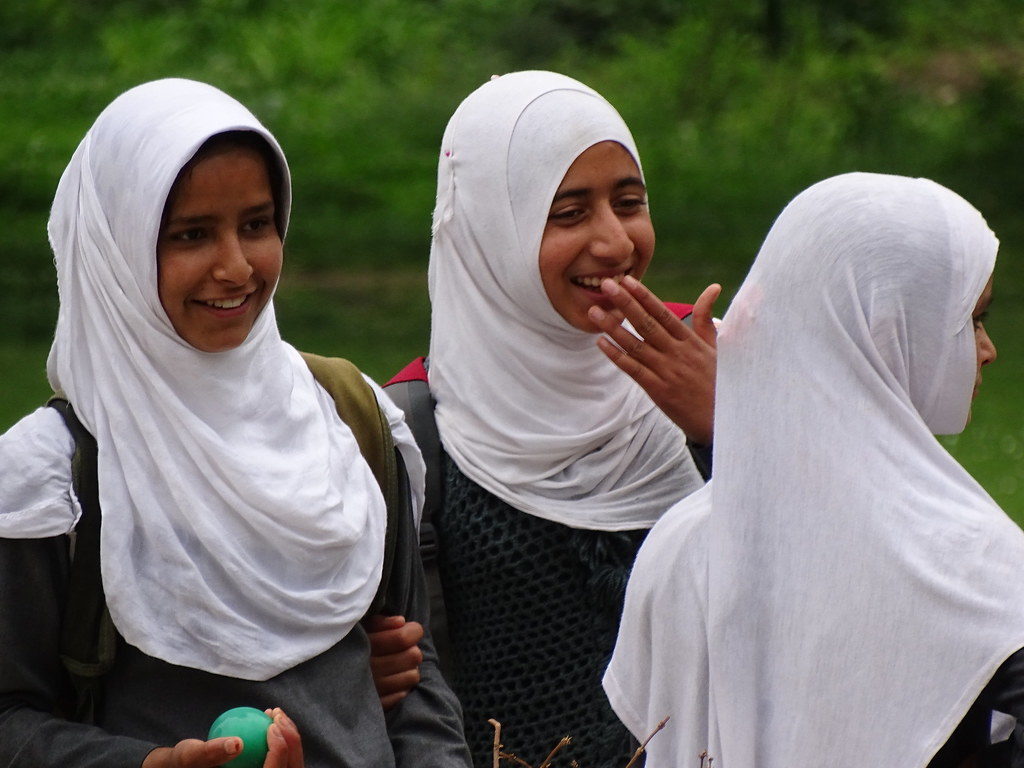When my grandpa was growing up in South India, his parents were unable to support his brother, Rama, so they sent him to live with a Muslim family. Rama converted to the Islamic faith, changed his name to Abdul Rahim and has been a devout Muslim for the past 70 years.
My grandpa, a Hindu, was devastated by this turn of events. His elder brother was a role model, and converting to Islam was the height of betrayal. The brothers talked infrequently, and when they did my grandpa always referred to him as “Rama,” clinging onto the past with obstinacy. Even today, my grandpa and his brother only talk once a month at most.
Abdul Rahim’s family currently lives in Dindigul, India. He has three sons and several grandchildren who are all Muslim. I’ve visited India several times, and yet if I ever went to their house, I have no memory of it. We are much closer with my cousins on my grandma’s side of the family, who are Hindu. I’ve played games with them, had meals together and made many memories. In contrast, the only way I know the names of some of his family members is because my dad told me.
My grandpa raised himself to a higher socioeconomic status with the education he received, while Abdul Rahim was not fortunate enough to be able to do so. The Hindu side of the family is actively religious, and often gets together to celebrate Hindu holidays and occasions, such as Diwali and Navaratri. Meanwhile, the Muslim members of my family are conspicuously absent. And so my family is effectively split in two.
When I purchased the Quran for E/H I last year, my grandpa asked me why I bought it. When I answered that I was reading it for school, he snorted in disgust. I was stunned. Why was such anti-Muslim festering sentiment in our household?
The answer is politics.
Islam first came to India through Arab and Mughal invaders in the 7th century and again in the 16th century. Mughal rulers commonly married Hindu women by force, thereby converting them to Islam. These atrocities committed by the invading Mughals left the native Hindu people distrustful of Muslims. The Mughal invaders caused the initial rift between Hindus, 80% of India’s population, and Muslims, who are a minority at just 14%.
The Mughals left India in the 19th century, and much of the territory fell under British control, but many Indian Muslims remained. By the time the British left India in 1947 after 250 years of occupation, the animosity had grown exponentially, and India split into two countries to form Pakistan in what was known as Partition. The role Britain played in Partition cannot be overemphasized; its occupation polarized many ethnic groups within India, and exacerbated both the Hindu-Muslim enmity and discrimination in the prevalent caste system.
The historical trauma of Mughal and British occupation opened the gate for contemporary political leaders to use religion as an excuse for discriminating policies that severely disadvantage Muslims living in India.
Even today, discrimination against Muslims is rampant in India— in employment, public and government services. Extremist groups in India have been spreading propaganda and misinformation about Muslims. Hate speech and other harmful rhetoric have found their way into mainstream social media. The current state of affairs in India is such that the average Hindu who consumes popular media holds extreme biases towards Muslims.
Two major political parties have controlled Indian national politics for the last several decades: the Congress Party and the Bharatiya Janata, or Indian People’s Party (BJP). Traditionally, the BJP is the party that advocates for urban middle and upper class citizens. It focuses on business and economics, often at the expense of lower socioeconomic classes. In recent years, however, the BJP has become influenced by certain Hindu extremist organizations. Their political message has morphed into a reiteration of the original purpose of Partition. To the 210 million Muslims living in India they say: “This is a country for Hindus. Get out.” That’s the equivalent of saying that the entire Hispanic population of America doesn’t belong in the country.
The current BJP government recently passed a bill banning the entrance of non-Hindu refugees into the country. Legislative actions like these reinforce the message that the Indian government has been spreading to its people for too long— that people of a different faith are inferior, and that Muslims do not deserve equal and humane treatment, and that they should be ostracized in a society in which they have lived for hundreds of years.
It’s time for the Indian government to stop trying to polarize its people based on their religious beliefs. Hindu Indians must rethink the idea of being a Hindu country. The concept of separating people of different religious faiths, introduced by the British as a way to divide the native population, serves no constructive purpose and should not play a role in Indian politics. Perhaps, if the Indian government takes measures toward neutralizing interreligious conflict and actively advocates for the equality of religious beliefs, future generations will not experience the split that I witness in my family. Perhaps, if the polarization had never occurred, my grandpa would never have lost his brother.
Photo: “Muslim Girls in Shalimar Bagh Garden – Srinagar – Jammu & Kashmir – India” by Adam Jones is licensed under CC BY 2.0





It is sad to hear your family split issue, and though i agree the social bias has changed recently it is trying to bring to level and neutral than tilted in favour of one religion over last 70 years or so consistently and systematically as state policy and law as tool by many political parties and not by people behavior. The polarization has not separated your grandpa from his brother but changing of religion in liue of allowing to stay together has. Imagine if Abdul son was to stay with your grand father he would not be converted to Hindu and there would be no split at all. In India you expect some thing from others but you would not want to do same to other faiths. I my self had question if partition of India was based on religion what did we get out it at least freedom of Garba dance without stone pelting is minimum to expect. What should be stopped in india is every one follow own faith and Hindu are asked to follow seculars that is going to be stopped for sure. History of secular countries becoming only one faith country is for you to see starting from Persia, India does not want to go Persian way. Let there be equal right and duty together for all and no one is being asked to go any where and no one has gone any where in 75 years infact more and more people are pouring in India from every where , even illegal migration resistance is considered against one faith which speaks volume. So if some thing has happened every one has to ask what did i do to become True Indian first.
Long live India